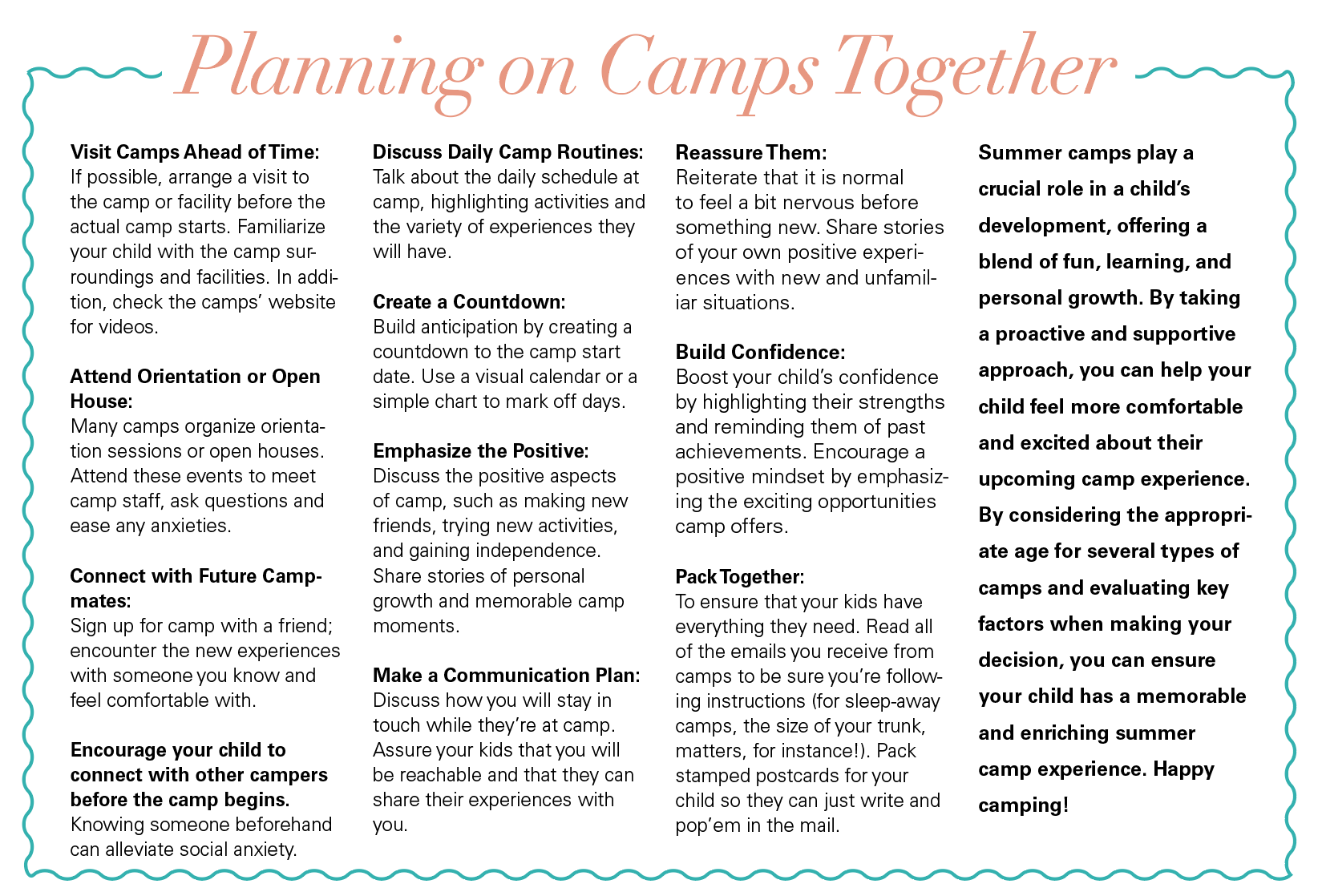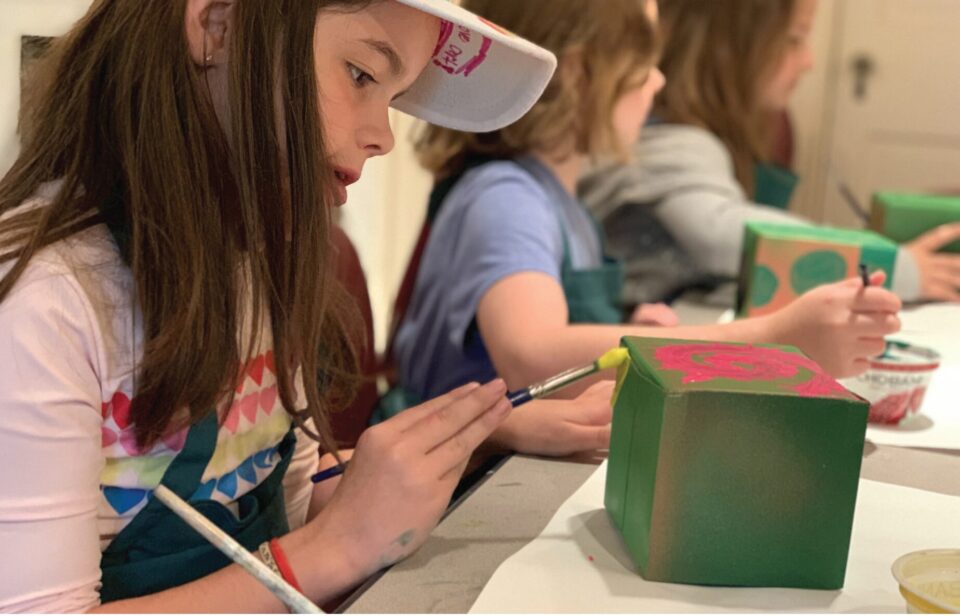In February, the warmth of summer seems far away, but it’s really not and now’s the time for making summer plans for your kids. Each winter, you’re faced with the annual quest to find the perfect summer camp for your child — if you delay, it is at your own peril!
Summer camps offer a world of opportunities for kids to learn, grow and make lifelong memories. It is a wonderful opportunity for kids to continue to build and practice using social skills and critical thinking skills.
Many parents send their kids to camp because camps provide enrichment. But camps also help building relationships, provide kids an opportunity to learn about themselves and, of course, try new things. It is also a terrific way to learn skills outside of the classroom and reduce the dreaded summer skill loss.
Margo Spurgeon, director of reach marketing at Crossroads Church in Cincinnati, says, “The number one reason kids should go to camp is to find out who they are. Unplugging from the stresses of school and everyday life, detoxing from scrolling on a screen, and distancing themselves from the social media algorithms, are elements of camp that give kids the margin and opportunity to understand who they are and how they can impact and interact with the world around them.”
Let’s look at different types of camps, appropriate ages for each, essential factors to consider when choosing the ideal camp for your child, and what steps to take to prep your kids for their camp experience.
DAY CAMPS: THE GATEWAY TO ADVENTURE
Day camps provide a fantastic introduction to the summer camp experience. Typically designed for children aged 5 to 12, day camps offer a diverse range of activities, from arts and crafts to sports to outdoor adventures. Elise Solomon, Taft Museum of Art, says that day camps are great for kids of all ages. These camps allow kids to enjoy activities or topics of interest or explore new activities. They also allow kids to make new friends while returning home each evening, fostering a sense of independence without the overnight stay.
OVERNIGHT CAMPS: A TASTE OF INDEPENDENCE
Around the age of 8 to 14, children may be ready for the next step – overnight camps. These camps offer a more immersive experience, with a variety of activities, team-building exercises and the opportunity to sleep away from home. Overnight camps provide a unique chance for personal growth, resilience, and self-reliance as children learn to navigate life outside their familiar surroundings. Joel, 13 years old, says that he enjoyed overnight camp because, “it’s a break from my parents, I make new friends, I get to choose what I want to eat and be responsible for myself. I have made great memories.”
He also shares that his experience with the overnight camp provided him with a new self-confidence.
 SLEEPOVER CAMPS: BONDS AND LIFELONG MEMORIES
SLEEPOVER CAMPS: BONDS AND LIFELONG MEMORIES
Typically, suitable for children aged 10 and older, sleepover camps are the pinnacle of summer camp experiences. With longer durations, these camps allow kids to forge deep connections with peers, instructors and nature. Sleepover camps often focus on building life skills, fostering leadership and creating lasting memories that will be cherished for years to come.
JJ, 12 years old, shares that his favorite part of sleepover camp includes, “getting out of the house and meeting new kids, playing gaga ball, and the massive capture the flag game” he has played the last day of camp. He also shares that he enjoys the independence and the memories he has made.
FIRST THINGS FIRST
Trust your gut when researching camps and keep these all-important aspects in mind:
- Safety First: Ensure the camp has proper safety measures, certified staff and a clean environment.
- Activities and Interests: Consider your child’s hobbies and interests when choosing a camp. Look for a diverse range of activities to keep them actively engaged.
- Staff-to-Child Ratio: A low staff-to-child ratio ensures personalized attention and a safer environment.
- Accommodations: For overnight camps, check the accommodations to ensure they meet your child’s comfort level.
- Communication: Choose a camp that maintains open communication with parents, providing updates and addressing concerns promptly.
SHOULD I FORCE MY KID TO GO TO CAMP?
Most parents do not have to force their kids to go to camp. Kids will often ask to attend a camp or two, however, some kids are not ready or may feel anxious to move beyond a day camp or an overnight camp. Sit down and talk about it with your kids to gauge their comfort levels. Making kids feel comfortable about going to camp involves addressing their concerns, building anticipation and fostering a positive mindset.
INVOLVE YOUR CHILD IN THE DECISION
Discuss the camp options together. Review fliers or websites together. Consider their interests and preferences when choosing a camp. Empower them by making them feel part of the decision-making process.
Summer camps play a crucial role in a child’s development, offering a blend of fun, learning, and personal growth. By taking a proactive and supportive approach, you can help your child feel more comfortable and excited about their upcoming camp experience. By considering the appropriate age for several types of camps and evaluating key factors when making your decision, you can ensure your child has a memorable and enriching summer camp experience. Happy camping!





